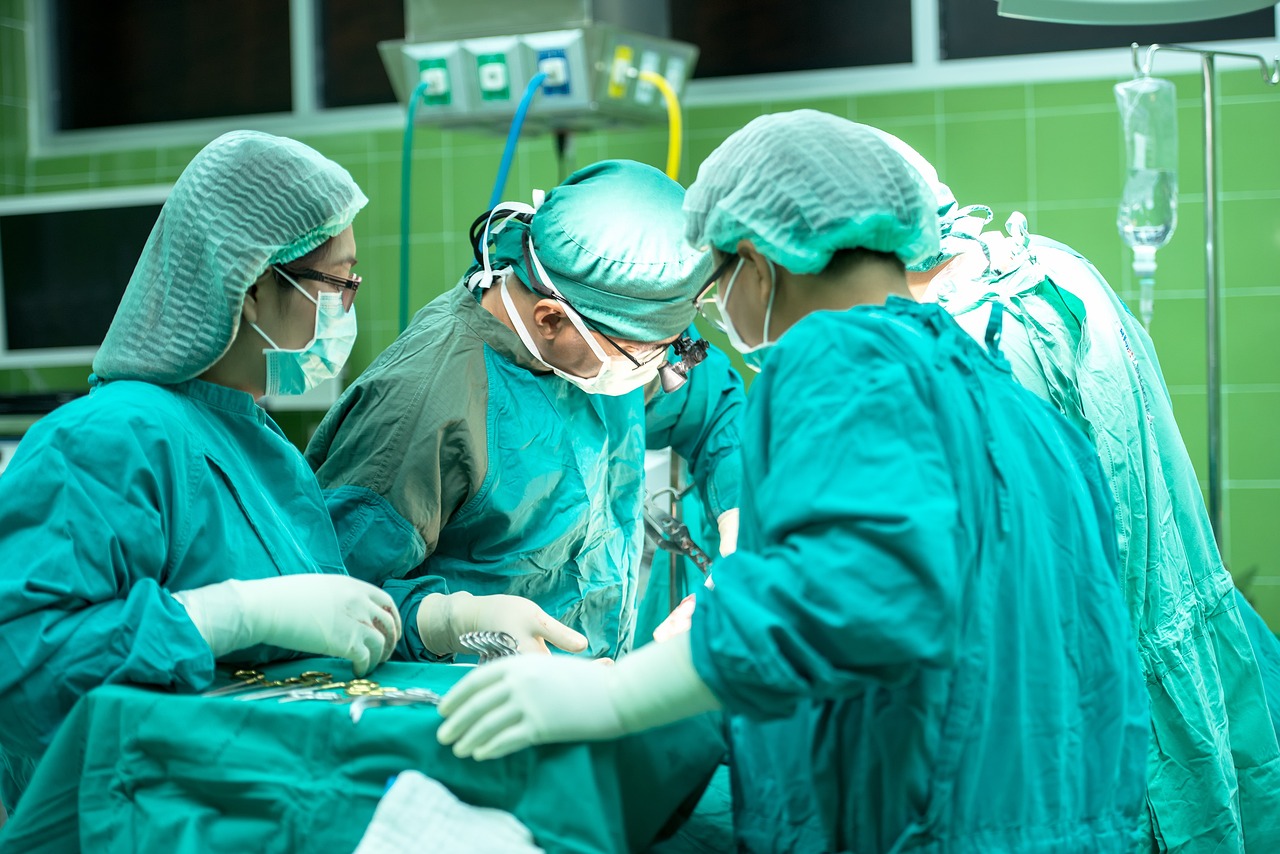Introduction:
In today’s globalized world, linguistic skills are invaluable, especially in medical settings. This article delves into the intricacies of Hospital Vocabulary in Arabic, equipping you with essential phrases for seamless communication. Whether you’re a healthcare professional, a language enthusiast, or someone preparing for a medical journey abroad, mastering Arabic medical terminology is vital. Let’s embark on this linguistic journey together.
Essential Phrases for Everyday Communication in Medical Settings
Understanding Hospital Vocabulary in Arabic
Navigating a medical environment requires a robust vocabulary. We’ll explore common medical terms, enabling you to comprehend and use them confidently. Through real-life examples and contextual learning, you’ll grasp the nuances of Arabic medical terminology effortlessly.
- First Aid: تقطيب الجرح (taqteeb al-jurh)
- CPR: الإسعافات الأولية (al-is’afat al-awwaliya)
- Mouth to Mouth: إنعاش فم لفم (in’ash fam lafam)
Essential Phrases for Everyday Communication
Effective communication in hospitals goes beyond clinical jargon. Discover indispensable phrases for patient interactions, explaining symptoms, and understanding medical instructions. Emphasizing pronunciation and cultural context, we’ll ensure you’re well-prepared for diverse medical conversations.
Here are a few examples of these Arabic phrases in a Story الكلمات في جمل مفيدة من خلال قصة
Omar: Are you feeling okay?
Omar Transliteration: Omar: Hal anta bikhair?
Omar Arabic: عمر: هل أنت بخير؟
Zyad: No, something doesn’t feel right.
Zyad Transliteration: Zyad: La, shay’un ma laysa ‘ala ma yuram.
Zyad Arabic: زياد: لا، شيء ما ليس على ما يرام.
Omar: Don’t worry, I’ll call an ambulance.
Omar Transliteration: Omar: La taqlaq, sa’attasil bisayyarat is’af.
Omar Arabic: عمر: لا تقلق، سأتصل بسيارة إسعاف.
Zyad: Thank you, Omar. I appreciate your help.
Zyad Transliteration: Zyad: Shukran, Omar. Ana mumtanun li mosa’adatik.
Zyad Arabic: زياد: شكرًا، عمر. أنا ممتن لمساعدتك.
Omar: The ambulance is on its way. Stay with me, Zyad.
Omar Transliteration: Omar: Al is’af fi at-tariq. Ibqa ma’i, Zyad.
Omar Arabic: عمر: الإسعاف في الطريق. ابقى معي، زياد.
An ambulance arrives and Zyad is taken to the hospital.
Arabic Text: تصل الإسعاف ويتم نقل زياد إلى المستشفى.
Doctor: We need to perform an X-ray immediately.
Doctor Transliteration: “Ad-doktor: Zyad bi haajatin ila ‘amaliya jirahiya ‘ajila.”
Doctor Arabic: “الدكتور: زياد بحاجة إلى عملية جراحية عاجلة.”
Omar: I’ll be here for you, Zyad, every step of the way.
Omar Transliteration: “Omar: Sa’akuunu huna min ajlika, Zyad, fi kulli khutwatin ‘ala at-tariq.”
Omar Arabic: “عمر: سأكون هنا من أجلك، زياد، في كل خطوة على الطريق.”
Nurse: How are you feeling after the surgery, Zyad?
Nurse Transliteration: “Al momarrida: Kayfa tash’uru ba’da al-‘amaliya, Zyad?”
Nurse Arabic: “الممرضة: كيف تشعر بعد العملية، زياد؟”
Zyad: I’m a bit sore, but I think I’m getting better.
Zyad Arabic: “زياد: أشعر بألم بسيط، ولكن أعتقد أني أتحسن تدريجيًا.”
Zyad Transliteration: “Zyad: Ash’uru bishway, walakin a’taqidu anni atatawaraqu tada.”
Nurse: That’s natural. Let me check your temperature to see how you’re doing.
Nurse Transliteration: “Al momarrida: Thalika tabi’i. Da’ni atahqaqo min darajati harartika li ‘ara kayfa halak.”
Nurse Arabic: “الممرضة: ذلك طبيعي. دعني أتحقق من درجة حرارتك لأرى كيف حالك.”
Nurse checks Zyad’s temperature with a thermometer.
Arabic Text: الممرضة تقيس حرارة زياد باستخدام محرار.
Nurse: Your temperature is normal, which is a good sign. Here’s your medicine.
Nurse Arabic: “الممرضة: حرارتك طبيعية، وهذا أمر جيد. إليك دواؤك.”
Nurse Transliteration: “Al momarrida: Hararatok tabi’iya, wathalika amrun jayyid. ilayka da’waoka.”
Zyad: Thank you. I appreciate your care and attention.
Zyad Arabic: “زياد: شكرًا. أنا ممتن لرعايتك واهتمامك.”
Zyad Transliteration: “Zyad: Shukran. Ana mutannun li ri’ayatiki wa ihtimamiki.”
Nurse: You’re welcome, Zyad
Nurse Transliteration: “Afuwan, Zyad.”
Nurse Arabic: الممرضة: عفوًا، زياد.
Every once in a while, one may have to visit some relatives or friends in the hospital. So let us learn some commonly used Arabic vocabulary related to healthcare:
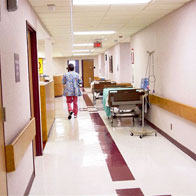 | 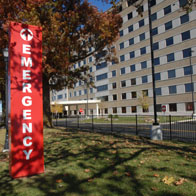 | 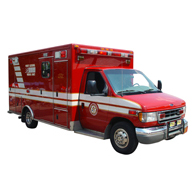 |
| Hospital | mustachfā | مستشفى | Emergency | Altawari’ / Al musta’jalāt | الطوارئ / المستعجلات | Ambulance | is’āf / sayārat al is’āf | سيارة الإسعاف / إسعاف |
 |  |  |
| Doctor | tabīb(m) / tabība(f) | طبيب / طبيبة | Pharmacy | saidaliya | صيدلية | Medicine | dawaa’ / ‘adwia(pl) | دواء / أدوية |
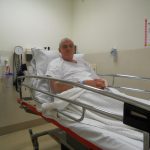 | 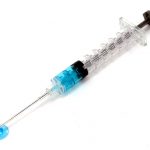 | 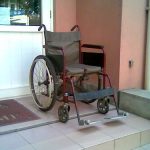 |
| Patient| marīd(m) / marīda(f) | مريض / مريضة | Syringe | mihqana | محقنة | Wheelchair | korsi mutaharrik | كرسي متحرك |
 | 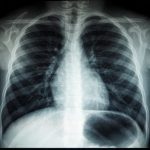 |  |
| Stethoscope | sammā’at attabīb | سماعة الطبيب | X-ray| al’achi’a assīnia | الأشعة السينية | Nurse | momarrid(m) / momarrida(f) | ممرض / ممرضة |
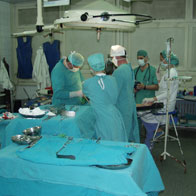 | 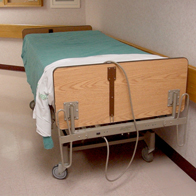 | 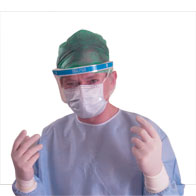 |
| Operating room | ghorfat al ‘amaliāt | غرفة العمليات | Bed/Beds | sarir / assirra(pl.) | سرير / أسرة | Surgeon| jarrāh | جراح |
Essential Phrases for Everyday Communication
Effective communication in hospitals goes beyond clinical jargon. Discover indispensable phrases for patient interactions, explaining symptoms, and understanding medical instructions. Emphasizing pronunciation and cultural context, we’ll ensure you’re well-prepared for diverse medical conversations.
| English | Transliteration | Arabic Translation |
|---|---|---|
| Clinic | ‘iyāda | عيادة |
| Polyclinic | mostawsaf | مستوصف |
| Patient room | ghorfat almarīd | غرفة المريض |
| Operating room | ghorfat al ‘amaliāt | غرفة العمليات |
| waiting room | ghorfat al intizār | غرفة الإنتظار |
| Recovery room | ghorfat alin’āch | غرفة الانعاش |
| Bandage | dimāda | ضمادة |
| Ray machine | jihāz alachi’a | جهاز الأشعة |
| Surgery | ‘amalia jirāhia | عملية جراحية |
| Anesthesia | attakhdīr | التخدير |
| Anesthetic | banj | بنج |
| Examining | kachf / fahs | كشف / فحص |
| Sterilization | ta’qīm | التعقيم |
| Wound | jorh | جرح |
| Birth | wilāda | ولادة |
| Cough | kohha | كحة |
| Pharmacist | saidali | صيدلي |
| Reception | istiqbāl | استقبال |
| Insurance card | bitaqat atta’mīne | بطاقة التأمين |
| Scale | wazn | وزن |
| Doctor’s office | maktab attabīb | مكتب الطبيب |
| Diagnosis | tachkhīs | تشخيص |
| Prognosis | tanabbo’ | تنبؤ |
| Prescription | wasfa tippiya | وصفة طبية |
| Overdose | jor’a mofrita / za’ida | جرعة مفرطة / زائدة |
| Intensive care | al ‘inaya almorakkaza / alfa’iqa | العناية المركزة / الفائقة |
| Anatomy | tachrīh | تشريح |
Conclusion:
Mastering Hospital Vocabulary in Arabic is indispensable for effective communication in medical settings. By incorporating these essential phrases into your language repertoire, you will enhance your ability to navigate diverse healthcare scenarios. Practice, cultural sensitivity, and linguistic proficiency are the keys to successful communication in the medical field.
Additional Resources:
For further exploration, consider these resources:
